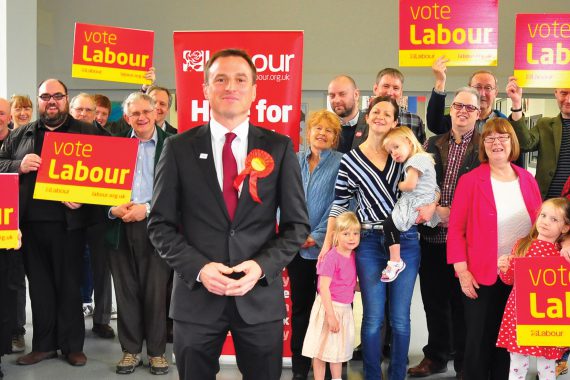Cancelling non-urgent NHS work because of winter pressures will do more harm than good, a GP told parliament as MPs debated the winter crisis.
Dr Paul Williams, told fellow MPs in today’s debate – which comes as hospitals are cancelling thousands of non-urgent operations and appointments this month – that he worked on the NHS frontline last week.
The Labour MP, who worked shifts in the GP extended access and urgent care centre in Stockton, north east England, told health minister Philip Dunne ’cancelling non urgent work will only make things worse’.
He called for an apology to patients whose conditions could be exacerbated by longer waits for treatment, after the shadow health secretary tabled an urgent question forcing a minister to answer MPs’ questions about the winter pressures.
It was the first time since the summer Dr Williams had worked as a doctor.
Mr Dunne apologised for patients who had endured long waits in hospital corridors, including those who were sitting on floors, as highlighted by Yorkshire MP Tracy Brabin.
The minister said: ’I apologise to those patients who are not treated as quickly as we would like them to…There are seats, … but I agree with it (sleeping on the floor) is not acceptable.’
However Mr Dunne, who took questions whilst health secretary Jeremy Hunt was at Downing Street for a reshuffle meeting, stressed that there were pressures in the NHS every winter. He said the Department of Health had started its planning much earlier than ever before.
He told MPs: ‘We have have some kind of crisis every winter.’
He said deferring operations and setting up a national panel to plan this was ‘a routine way of dealing with pressure that has come through the front doors’.
However shadow health secretary Jonathan Ashworth said: ‘This is not planning for winter, it is more like a wing and a prayer.’
He described ‘blanket cancellation of operations leaving people in pain, distress and discomfort’.
MPs described long waits for care in ambulances at hospitals at constituencies throughout the country, as well as praising staff for the care they were providing.
Mr Ashworth asked if trusts would be reimbursed for the cancelled operations and Mr Dunne responded that it was too early to say if they were deferred, rather than cancelled.
He told Mr Dunne: ‘Patients don’t want perfection, they just want the NHS properly funded, properly staffed.’
Mr Dunne said DH was investing in more recruitment and had put aside money for winter pressures.
Former heath secretary Kenneth Clarke said the debate was almost an annual ‘ritual’ but highlighted the ’emergency availability of GP services’.
Mr Dunne said: ‘The number of over 80s who are presenting in our hospitals thorough A&E are presenting exponentially ….. that’s why many hospitals are introducing frail elderly units.
‘He’s right to point to the integration that’s necessary.’
Huw Merriman, Conservative MP for Bexhill and Battle, asked ‘isn’t it time’ for the state would step in and provide cover where ‘very fine GP practices’ faced pressures if other practices were not well run or GPs were retiring.
Mr Dunne suggested this was the responsibility of CCGs.

















